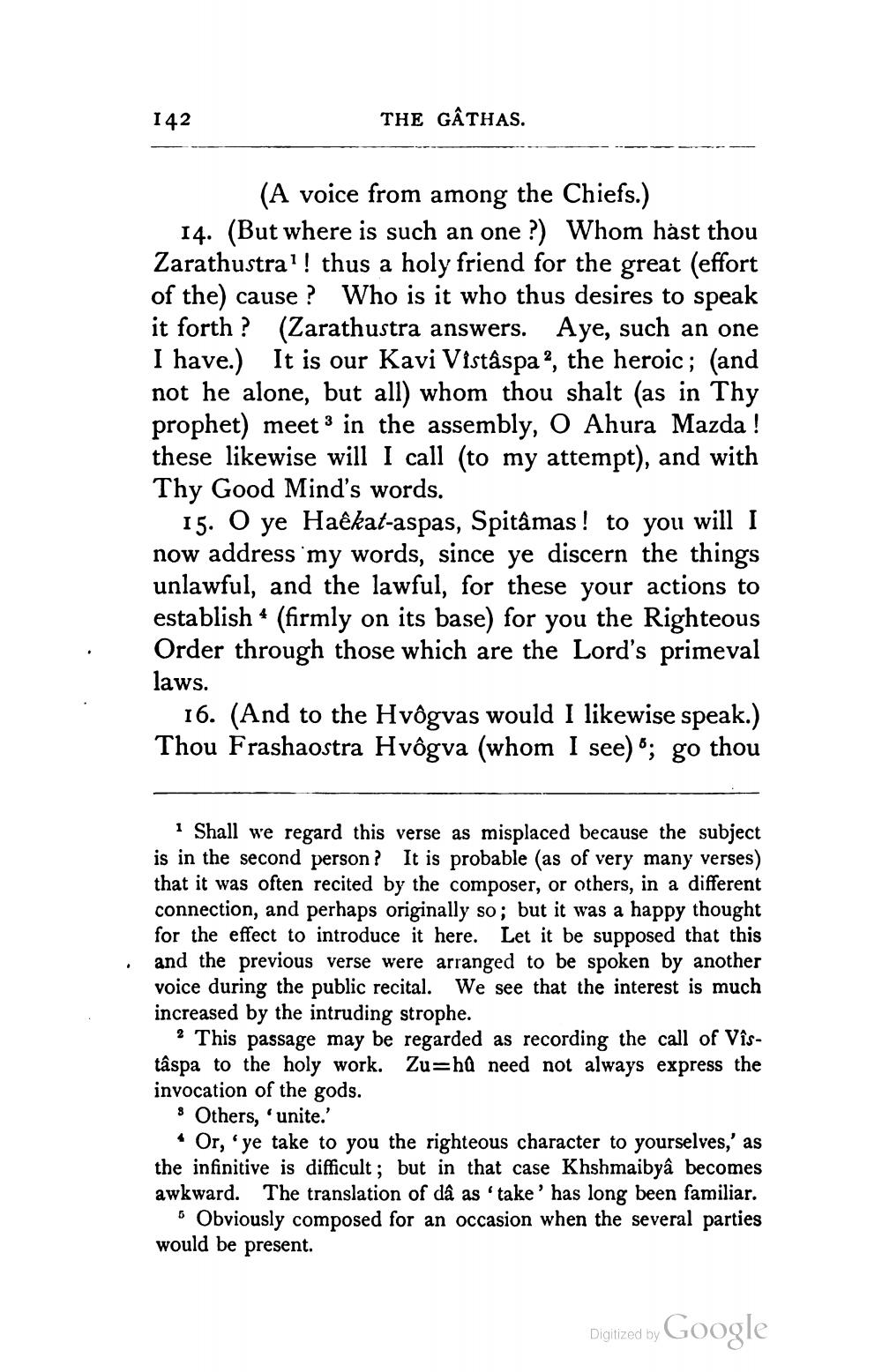________________
142
THE GÂTHAS.
---
--
-
--
(A voice from among the Chiefs.) 14. (But where is such an one?) Whom hást thou Zarathustra'! thus a holy friend for the great (effort of the) cause ? Who is it who thus desires to speak it forth ? (Zarathustra answers. Aye, such an one I have.) It is our Kavi Vistâspa?, the heroic; (and not he alone, but all) whom thou shalt (as in Thy prophet) meet 3 in the assembly, О Ahura Mazda ! these likewise will I call (to my attempt), and with Thy Good Mind's words.
15. O ye Haëkat-aspas, Spitâmas! to you will I now address my words, since ye discern the things unlawful, and the lawful, for these your actions to establish + (firmly on its base) for you the Righteous Order through those which are the Lord's primeval laws.
16. (And to the Hvôgvas would I likewise speak.) Thou Frashaostra Hvôgva (whom I see) ; go thou
* Shall we regard this verse as misplaced because the subject is in the second person? It is probable (as of very many verses) that it was often recited by the composer, or others, in a different connection, and perhaps originally so; but it was a happy thought for the effect to introduce it here. Let it be supposed that this and the previous verse were arranged to be spoken by another voice during the public recital. We see that the interest is much increased by the intruding strophe.
This passage may be regarded as recording the call of Vîstâspa to the holy work. Zu=hů need not always express the invocation of the gods.
& Others, 'unite.'
• Or, 'ye take to you the righteous character to yourselves,' as the infinitive is difficult; but in that case Khshmaibyâ becomes awkward. The translation of då as 'take' has long been familiar.
6 Obviously composed for an occasion when the several parties would be present.
Digitized by
Digitized by Google




